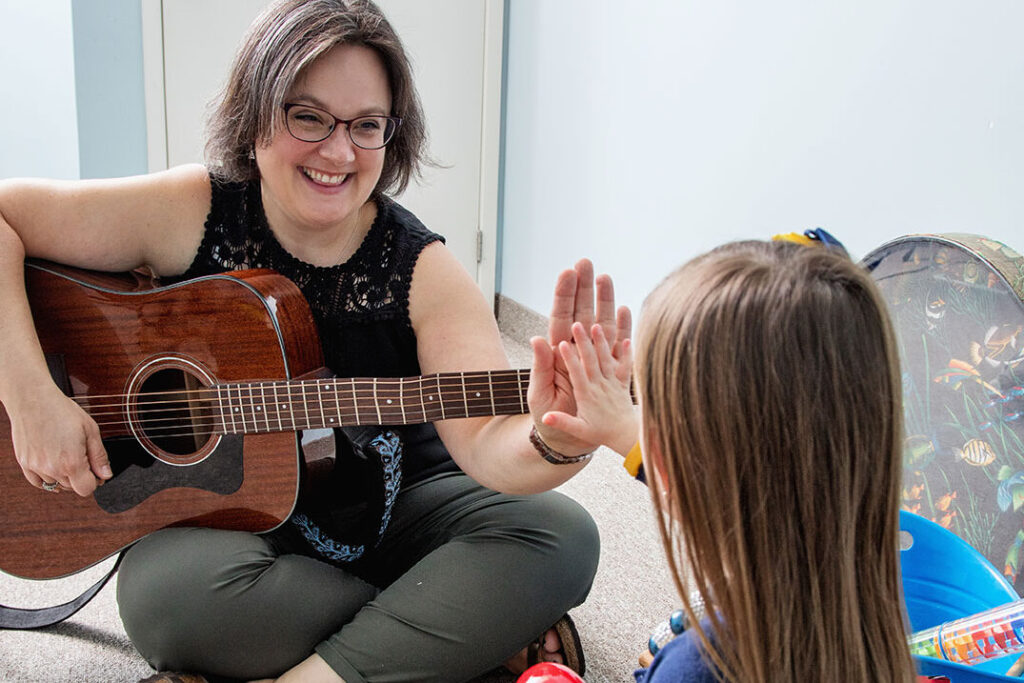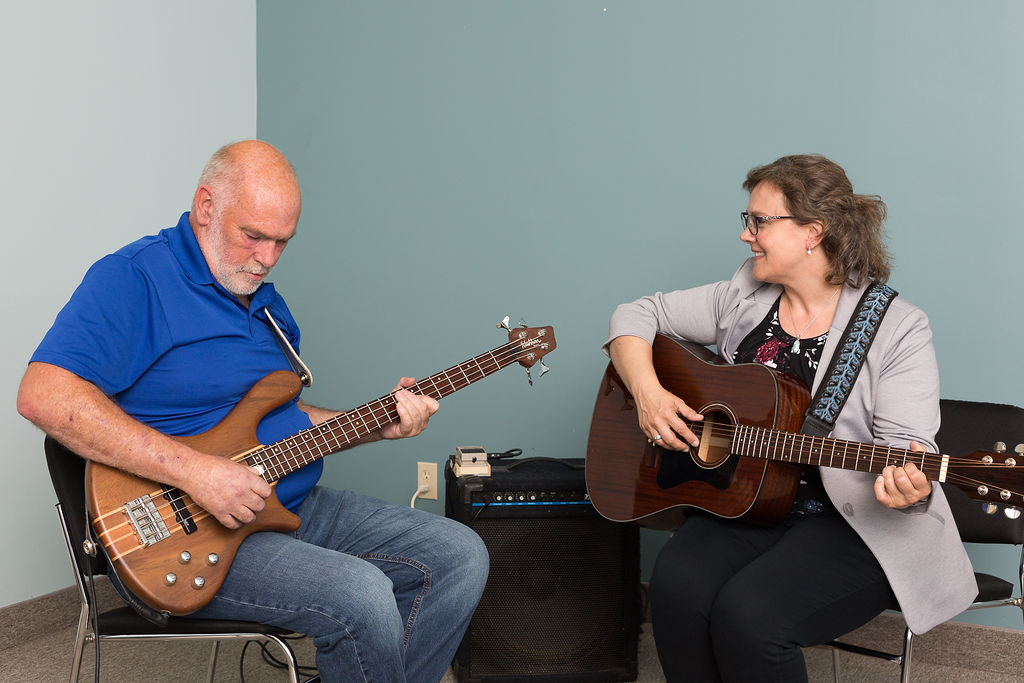So What Is Music Therapy?
Ah…the million-dollar question that every music therapist secretly dreads. Music therapy can be used with many different clients and in many different ways. As a result, it can be difficult to explain.
Listening to your iPod, singing your heart out in the shower, or attending a concert are great music experiences. As such, they can have ‘therapeutic’ benefit but that doesn’t make them a therapy. Music therapy is a clinical process, that is to say it involves an assessment, goals and treatment plan. Sometimes goals focus on a client’s development or rehabilitation. For example, working on learning or regaining skills. In contrast, other goals focus on mental health and wellbeing. For instance, emotional learning or easing symptoms of depression or anxiety.
Here is the official definition from the Canadian Association of Music Therapists:
Music therapy is a discipline in which Certified Music Therapists (MTAs) use music purposefully within therapeutic relationships to support development, health, and well-being. Music therapists use music safely and ethically to address human needs within cognitive, communicative, emotional, musical, physical, social, and spiritual domains. CAMT, 2000


